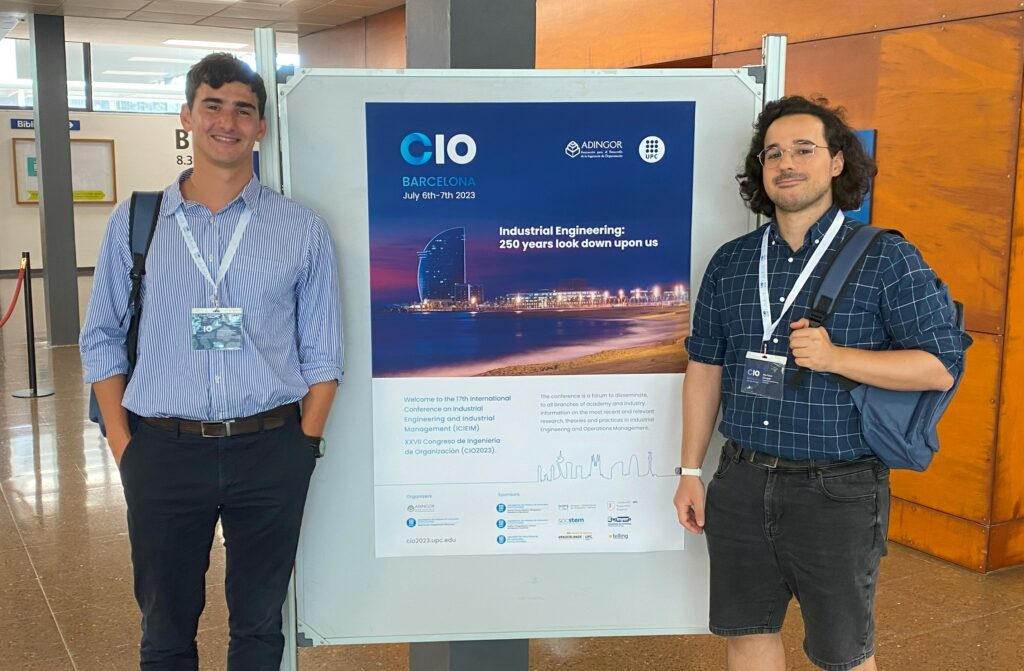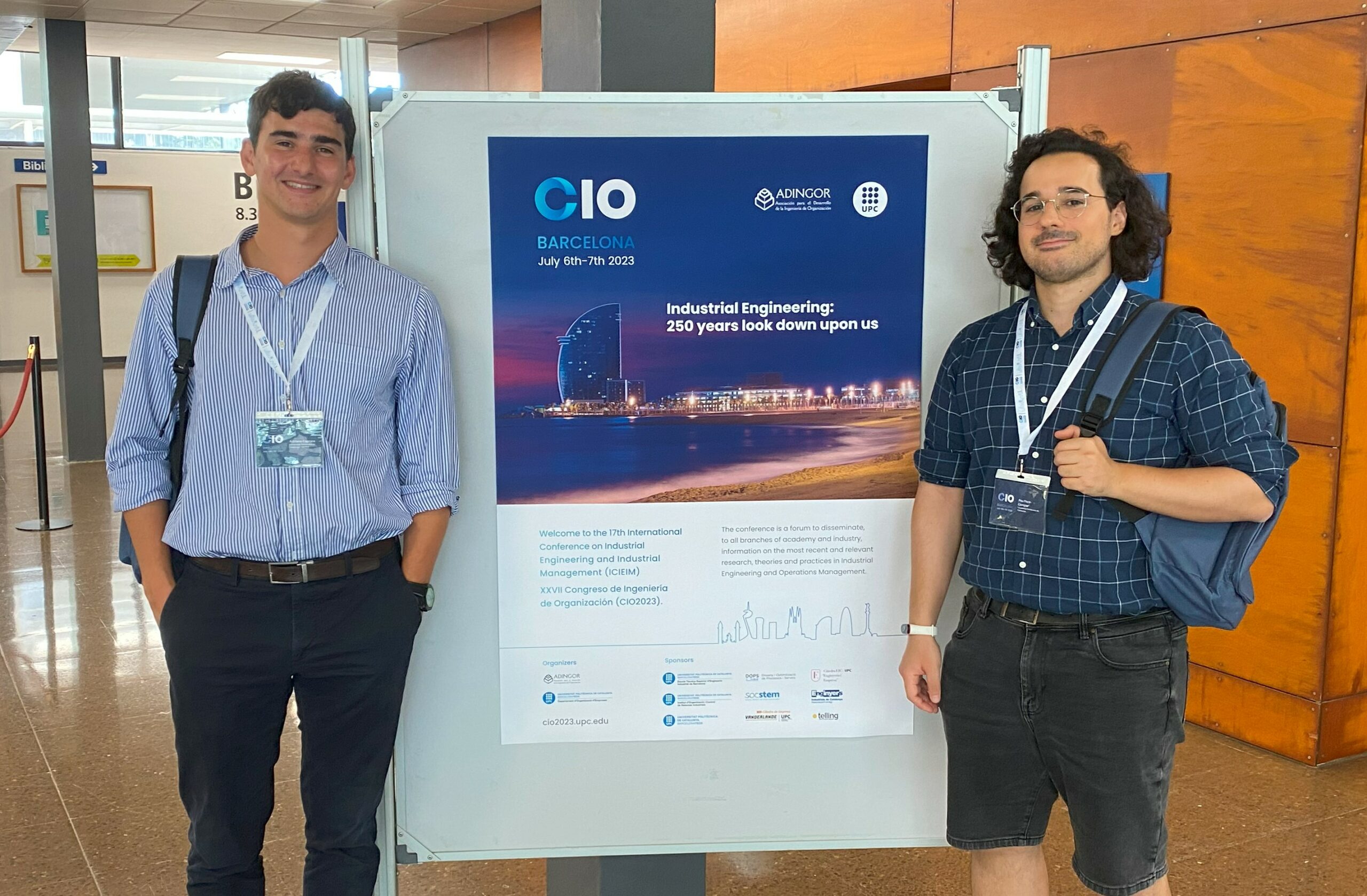The 17th International Conference on Industrial Engineering and Industrial Management (CIO2023) in Barcelona provided the perfect platform for project partner UPC to present their latest research and findings from the FLEX4FACT project. The conference, held from the 6th to 7th of July, served as a valuable forum for sharing cutting-edge research, theories, and practices in Industrial Engineering and Operation Management, with the motto “Industrial Engineering: 250 years look down upon us.” Diverse topics, including Production planning and control, Operation Research, Modelling and Simulation, and the Impact of Industrial Engineering on Sustainable Development Goals, were discussed.

During the event, UPC presented two papers showcasing their findings from their work within the FLEX4FACT project:
1. The Impact of Electricity Tariffs on Optimal Production Scheduling (presented by Pau Fisco-Compte)
This study focuses on the crucial role of energy costs as a significant component of manufacturing expenses. It is known that electricity tariffs can significantly impact businesses’ profitability. The research investigated the effects of different electricity tariffs, with a particular focus on time-of-use and real-time-pricing tariffs, on a single-machine production process.
The primary objective of the study was to optimize production costs through a demand response price-based program by considering energy prices when planning the optimal production scheduling. The adoption of a real-time-pricing tariff demonstrated the potential to reduce the carbon footprint of the production process. Study results highlighted that companies subscribing to real-time-pricing tariffs benefit from reduced costs and also contribute positively to environmental sustainability by curbing carbon emissions. This demonstrates the importance of using electricity in industries when it is cheapest, most available and is mostly based on renewables.
2. Industrial Energy Cluster Optimization using Flexibility Aggregation (presented by Adriano Caprara)
This research explored the concept of Industrial Energy Cluster Optimization through Flexibility Aggregation, offering promising solutions for industries to reduce emissions and energy-related costs. By forming industrial energy communities, companies can collaboratively explore ways to enhance their energy efficiency. One key aspect of these communities is that they positively respond to flexibility offers by deviating industrial processes from their regular production schedules. This provision of flexibility is rewarded as it allows industrial companies to reduce their energy costs and incorporate renewable energy sources into their energy mix.
The paper presents a case study of an industrial energy community involving two factories. The energy system of this community feature shared a solar PV plant and a connection to the power grid. The objective of the research was to maximize self-consumption by aggregating the factories’ flexibilities through the application of a mixed-integer linear optimization model. The approach could demonstrate promising opportunities for cost reduction and the seamless integration of renewable energy sources in industrial energy communities. Results showed that these improvements can be achieved without causing any adverse impact on the daily production volumes.
The presentations by UPC at the ICIEIM conference provided valuable insights into the ongoing research and developments within the FLEX4FACT project. The findings contribute to advance the knowledge on achieving efficiency and sustainability in manufacturing processes, making the conference a notable event for knowledge exchange and research collaboration in this field.
